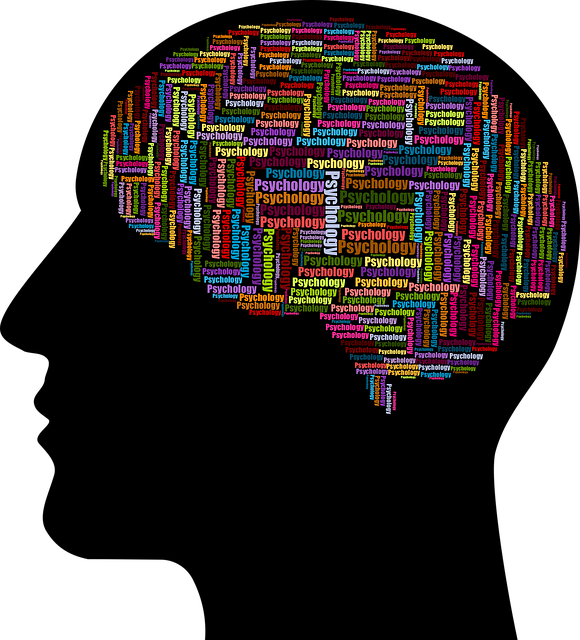Englewood Family Counseling Therapy is revolutionizing mental health care with advanced diagnostic tools and innovative strategies. They prioritize emotional intelligence, conflict resolution, and robust Mental Health Policy Analysis for accurate diagnoses. Utilizing technology to capture subtle cues, they ensure precise assessments, especially for complex cases. Additionally, their focus on therapist well-being through burnout prevention enhances the quality and longevity of care, ultimately improving patient outcomes and mental health services.
Mental illness diagnosis accuracy is a critical aspect of healthcare, with significant implications for patient outcomes. This article explores efforts aimed at improving diagnostic precision, delving into the challenges that lead to misdiagnosis and high rates of incorrect mental health assessments. We discuss innovative techniques, such as advanced assessment tools and enhanced professional training, while also highlighting patient-centric strategies that empower individuals to actively participate in their mental health journeys. For comprehensive support, consider Englewood Family Counseling Therapy for personalized guidance.
- Understanding the Challenges: Misdiagnosis Rates and Their Impact
- Innovative Approaches: Enhancing Diagnosis Techniques and Professional Training
- Patient-Centric Strategies: Empowering Individuals for Accurate Assessments
Understanding the Challenges: Misdiagnosis Rates and Their Impact

Misdiagnosis rates in mental health are alarmingly high, with studies indicating that many individuals receive incorrect or delayed diagnoses. This is a significant challenge, especially considering the impact on patient care and well-being. The consequences of misdiagnosis can be severe; it may lead to inappropriate treatments, delayed access to correct therapies, and potential harm to the patient’s emotional and psychological state. For instance, a person struggling with anxiety might be mistakenly diagnosed with depression, receiving ineffective treatment for an entirely different condition.
Englewood Family Counseling Therapy recognizes these challenges and strives to enhance diagnostic accuracy through various means. Promoting emotional intelligence among therapists and integrating conflict resolution techniques in therapy sessions can aid in recognizing subtle symptoms and distinguishing between similar disorders. Additionally, advocacy for a robust Mental Health Policy Analysis ensures that resources and guidelines are in place to support accurate diagnosis and treatment, ultimately benefiting those seeking mental health services.
Innovative Approaches: Enhancing Diagnosis Techniques and Professional Training

In the quest for improved mental illness diagnosis accuracy, innovative approaches are transforming the landscape of healthcare. Englewood Family Counseling Therapy leads the way by integrating cutting-edge techniques and enhancing professional training programs. One notable strategy involves advanced assessment tools that go beyond traditional methods, incorporating technology to capture nuanced behavioral patterns and emotional states. These tools enable mental health professionals to make more precise diagnoses, especially for complex conditions.
Moreover, Burnout Prevention Strategies for Healthcare Providers are being prioritized alongside Self-Care Practices. By fostering a culture of resilience and well-being among therapists and counselors, these strategies ensure sustained productivity and the ability to offer quality care. This holistic approach not only benefits professionals but also enhances patient outcomes by promoting more effective Anxiety Relief and overall mental health management.
Patient-Centric Strategies: Empowering Individuals for Accurate Assessments

Englewood Family Counseling Therapy has been at the forefront of patient-centric strategies aimed at enhancing mental illness diagnosis accuracy. By empowering individuals to actively participate in their assessments, therapists create a collaborative environment that fosters open communication and trust. This approach not only improves the reliability of diagnoses but also enhances patient engagement in their care plans. Recognizing that every individual is unique, with diverse cultural backgrounds and personal experiences, the therapy center incorporates elements of Cultural Sensitivity in Mental Healthcare Practice to ensure assessment methods are inclusive and non-judgmental.
Moreover, Social Skills Training and Stress Management techniques are integrated into the diagnostic process, recognizing their pivotal roles in mental health assessments. These strategies not only help individuals express their feelings more effectively but also enable therapists to gain deeper insights into their clients’ experiences. Through such patient-centric efforts, Englewood Family Counseling Therapy is revolutionizing mental healthcare, making diagnoses more accurate and personalized, ultimately leading to better outcomes for all.
Mental health professionals constantly strive to improve diagnosis accuracy, recognizing that early and accurate identification is key to effective treatment. By combining innovative techniques like advanced assessment tools with comprehensive training for healthcare providers, we can reduce misdiagnosis rates. Engaging patients in their care through education and empowerment, as seen in practices like Englewood Family Counseling Therapy, further strengthens this approach. These efforts collectively contribute to a more precise mental illness diagnosis, paving the way for personalized and compassionate treatment plans.














